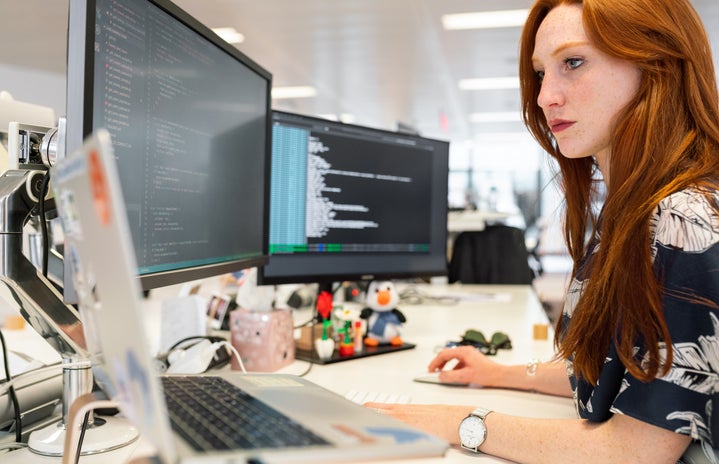Artificial Intelligence is a double-edged sword.
Listen, this is most definitely not a hot take. Most of society can come to the conclusion that there can be benefits to AI, but also realize there are undoubtedly a large number of dangers as well.
When discussing this issue with my peers, we often make our way to a conversation about how we use AI in school. I get it, when you first hear that sentence, I’m guessing your mind immediately went to cheating. But maybe that’s the problem?
Now I’m definitely not suggesting that students aren’t using AI to cheat their way through some assignments. I mean, come on, there’s a reason so many professors are using AI-detecting grading systems nowadays. What I am saying is that if we have this revolutionary resource at the tip of our fingers, why not use it for good?
In my experience, my mind frequently burns out after arduous study sessions or while working through mountains of homework. Especially after a long day of lectures, I have to stop my brain from melting out of my ears. So, I often ask my good colleague, ChatGPT, to simplify instructions on assignments that I can’t quite wrap my head around. Is there something so wrong with that?
My peers and I also tend to question how this phenomenon will impact our future careers. If so many students actually are using AI to maneuver their way through their majors, what does this mean for our generation as societal leaders? Gen Z often jokes about how our future doctors are “ChatGPT-ing” their way through medical school right now. Sure it’s funny… but is it that funny?
According to the Pew Research Center, 25% of U.S. public K-12 teachers believe that there is “more harm than benefit” in the use of AI in schools, while only 6% believe the inverse.
| More harm than benefit | More benefit than harm | About an equal mix of benefit and harm | Not sure | |
| All teachers | 25% | 6% | 32% | 35% |
| Elementary | 19% | 6% | 26% | 47% |
| Middle | 24% | 7% | 39% | 28% |
| High | 35% | 7% | 34% | 21% |
This triumphantly demonstrates the overwhelming conception of how the harmful use of AI is already integrating into even the earliest years of education.
In order to combat this manifestation of academic fraudulence, we must make a choice as students to use this resource to help us rather than harm us. In the context of AI use in schools, the choice is completely in our hands. This should resonate in regards to the onslaught of novel revolutionary resources that are being placed before us. We must use these technological tools to help us understand the “why,” and avoid relying on AI to tell us the “what.”
To put it simply, we can achieve this by prioritizing what we use AI for. By implementing AI in our academics through the lens of simplification, timeliness, and research, we can slowly jumpstart this switch of narratives.
At the end of the day, the choice is up to us as students, and I encourage all of you to implement these systems and solutions into your educational endeavors for good. Otherwise, you might just have your future doctor consulting with ChatGPT right outside of your examination room.


